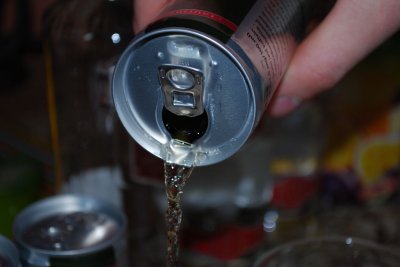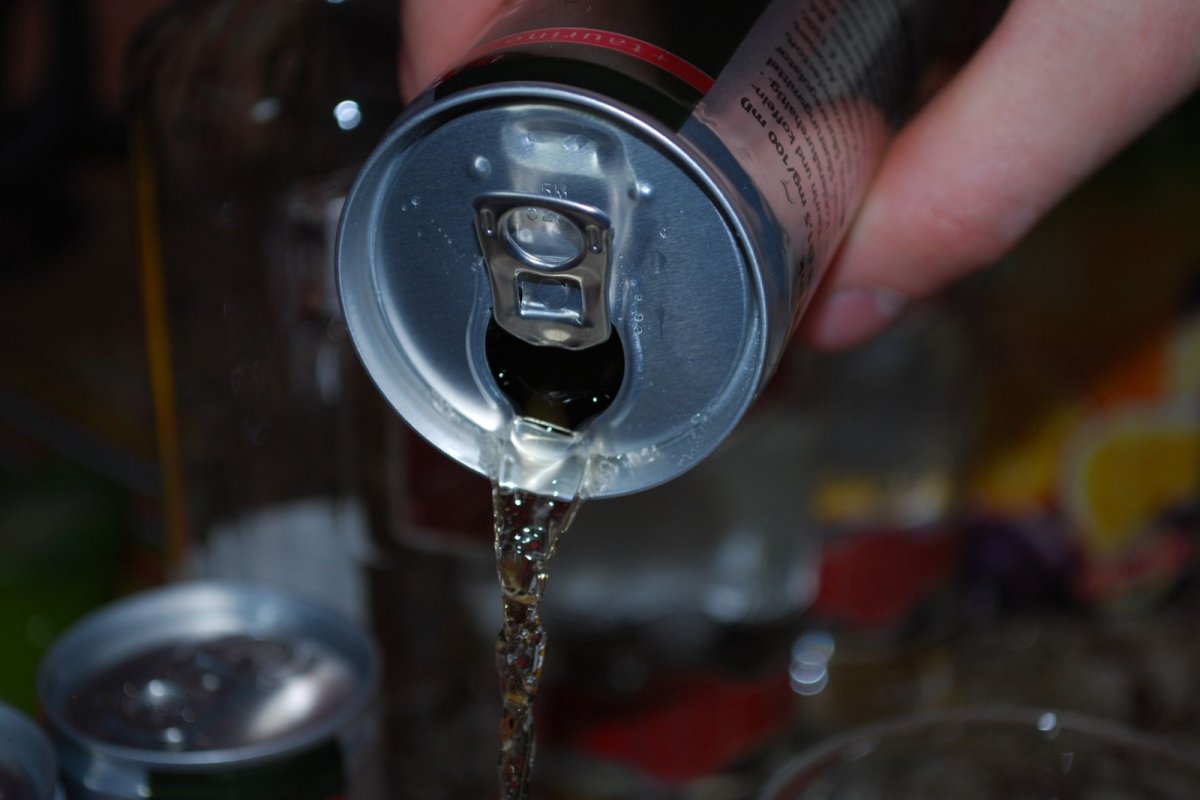 An energy drink being poured. Credit: Herbich Pixabay
An energy drink being poured. Credit: Herbich Pixabay
What happened to the energy drinks ban?
In 2019, the government announced it would ban the sale of energy drinks to children under 16. Despite research proving overconsumption leads to poorer health and education outcomes, the ban still hasn’t been put in place. On the back of Fizz Free February, we ask – what happened to the ban?
A background of clever marketing
Energy drinks were popularised in the 1980s and marketed as a tool for helping physical and mental productivity, underpinned by their high levels of sugar and caffeine. Brands quickly paired with sporting events and athletes and the drinks were branded as performance enhancers.
In recent years, energy drinks have taken the mainstream drinks industry by storm. Manufacturers no longer just focus on sports to sell their drinks but have also infiltrated gaming culture, extreme sports, and the music industry; Redbull even has its own music academy. They have become so embedded in pop culture, particularly youth pop culture, that young people in the UK now drink more energy drinks than the rest of Europe.
Health concerns
A big concern is the sheer amount of caffeine in these drinks: one can often contains much more caffeine than a coffee (and a concoction of other stimulants, artificial flavourings and sugar) and many young people will drink several cans in one go. In fact, the government’s consultation in 2018 found that a quarter of children who consume energy drinks will have three or more in one sitting.
There are major concerns about the long- and short-term implications on mental and physical health, and research has pointed to negative impacts of energy drinks on children that span from behavioural, concentration and sleeping problems through to headaches, heart failure, and other physical problems, as well as addiction.
In 2018, these negative impacts on young people led the then government to propose a ban of sales to the under-16s. They were supported by parents, teachers, and campaigners alike, as well as retailers. Supermarkets like Tesco, Morrison’s and Asda introduced their own voluntary bans which are still upheld today, and the Association of Convenience Stores were supportive on the grounds that a formal policy creates a ‘level playing field’ for all stores.
Within government, MPs within the Science and Technology committee also commissioned their own report and issued formal support for the ban based ‘on the basis of societal concerns and qualitative evidence, such as the experience of school teachers’.
Industry pushback
The main cause of push-back from industry and hesitancy from government was claims of insufficient quantitative evidence of the impacts of consumption. There is, nonetheless, a plethora of observational and anecdotal evidence from researchers, parents and teachers, and the most recent systematic review found some damning evidence linking high levels of consumption with alcohol use, smoking, irritability and school exclusion.
All this did not stop the government from following through with the commitment. In 2019, following a widely supported consultation (93% were in favour), the government formally introduced the ban within the Health Outcomes Green Paper, having found that advice and warning labels had not been enough of a deterrent.
Unsurprisingly, focus was moved elsewhere in 2020 and 2021 as we grappled with the pandemic, and the policy was never formally introduced. But now it seems to have quietly dropped off the agenda completely.
Risks today
As schools fall back into their pre 2020 routines, and children and young people are making up for lost time with their peers, teachers are concerned that energy drinks with continue to become increasingly popular, especially as major brands are now using influencers, popular musicians and sports fans to promote the drinks to younger audiences.
Without a formal ban, there is only so much schools can do to prevent consumption and popularity of energy drinks. Many schools do not allow energy drinks on campus but outside the of school gates, there are no limits.
Sarah, School Teacher at Claremount College;
Energy drinks are banned at my school and we try our utmost to enforce this ban. The problem being that local shops may still sell them to pupils and they can consume them off site, (despite having an agreement with the shopkeepers, to try and avoid selling them to our pupils).
I work in a SEN provision, the impact on the additives and sugars in the drinks, can be especially potent to our pupils. Many of the pupils at school have ADHD. A lot of the pupils will be medicated for this and the combination of medication and contents of energy drinks can create a potent cocktail which causes even greater highs and lows, which in turn leads to exacerbating mental health challenges. Pupils have often told me that they won't take their medication because of how it interacts with high sugar drinks.
Energy drink branding may also be used by our pupils as a status symbol as some pupils believe brands give them "mainstream" street creed.
To add to this, the government’s own research found that children in receipt of free school meals were more likely to consume energy drinks. So, if the government are serious about levelling up the health and education of young people, energy drinks are a great place to start: with much of the leg-work already done, this is very low-hanging fruit.
Bella Driessen, Local Action Officer, Sugar Smart
“There has already been a government commitment to banning the sales of energy drinks to under-16s, but years have now passed without action. Meanwhile, energy drinks assert themselves increasingly in young people’s lives and popular culture. The ban proved to be a popular proposal with policymakers, the scientific community, and the population at large: there is no reason for the government to waste any more time in following through.”
Sugar Smart UK: Want your local area to become Sugar Smart?
Sustain
The Green House
244-254 Cambridge Heath Road
London E2 9DA
020 3559 6777
sustain@sustainweb.org
Sustain advocates food and agriculture policies and practices that enhance the health and welfare of people and animals, improve the working and living environment, promote equity and enrich society and culture.
© Sustain 2024
Registered charity (no. 1018643)
Data privacy & cookies








